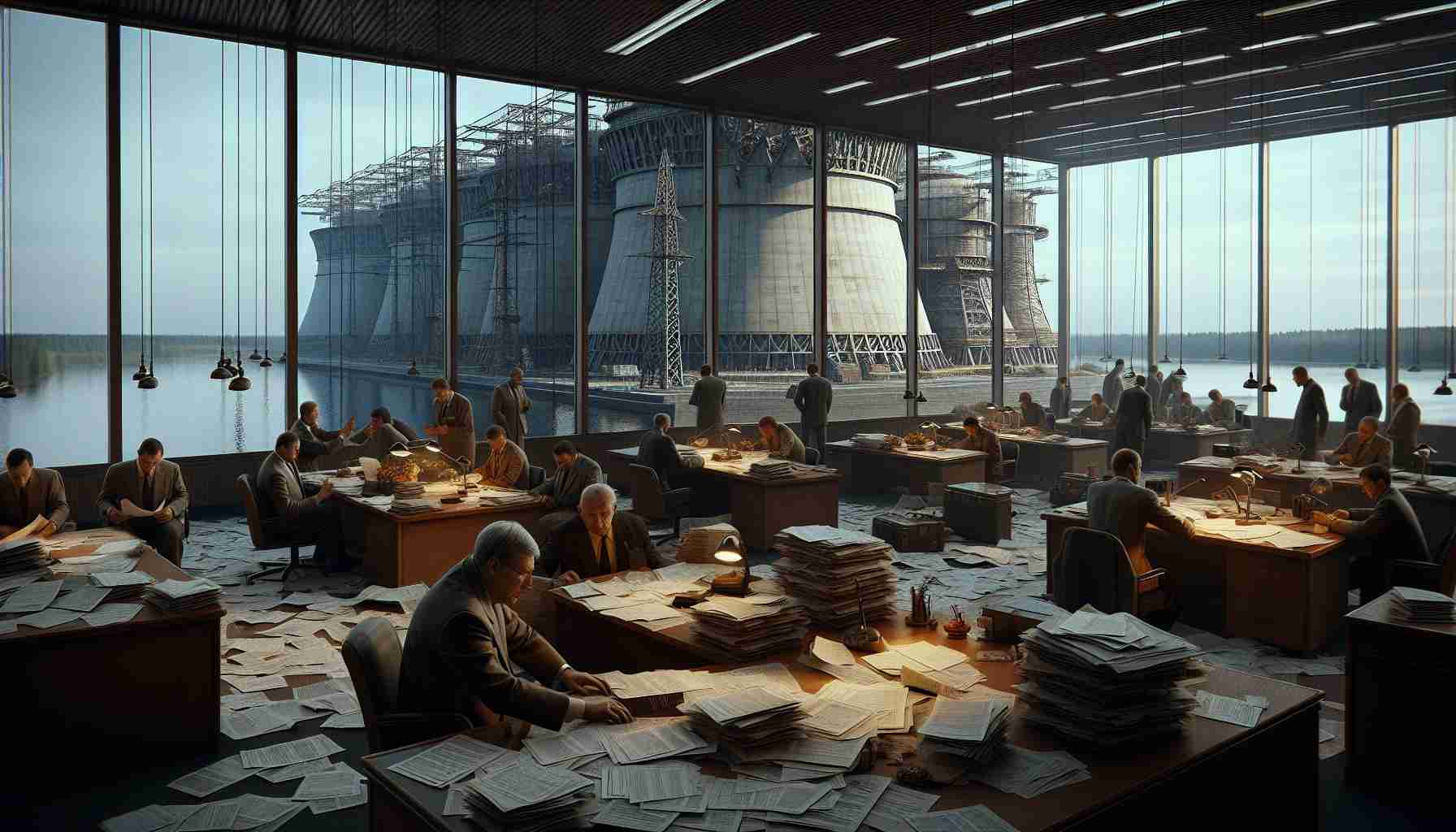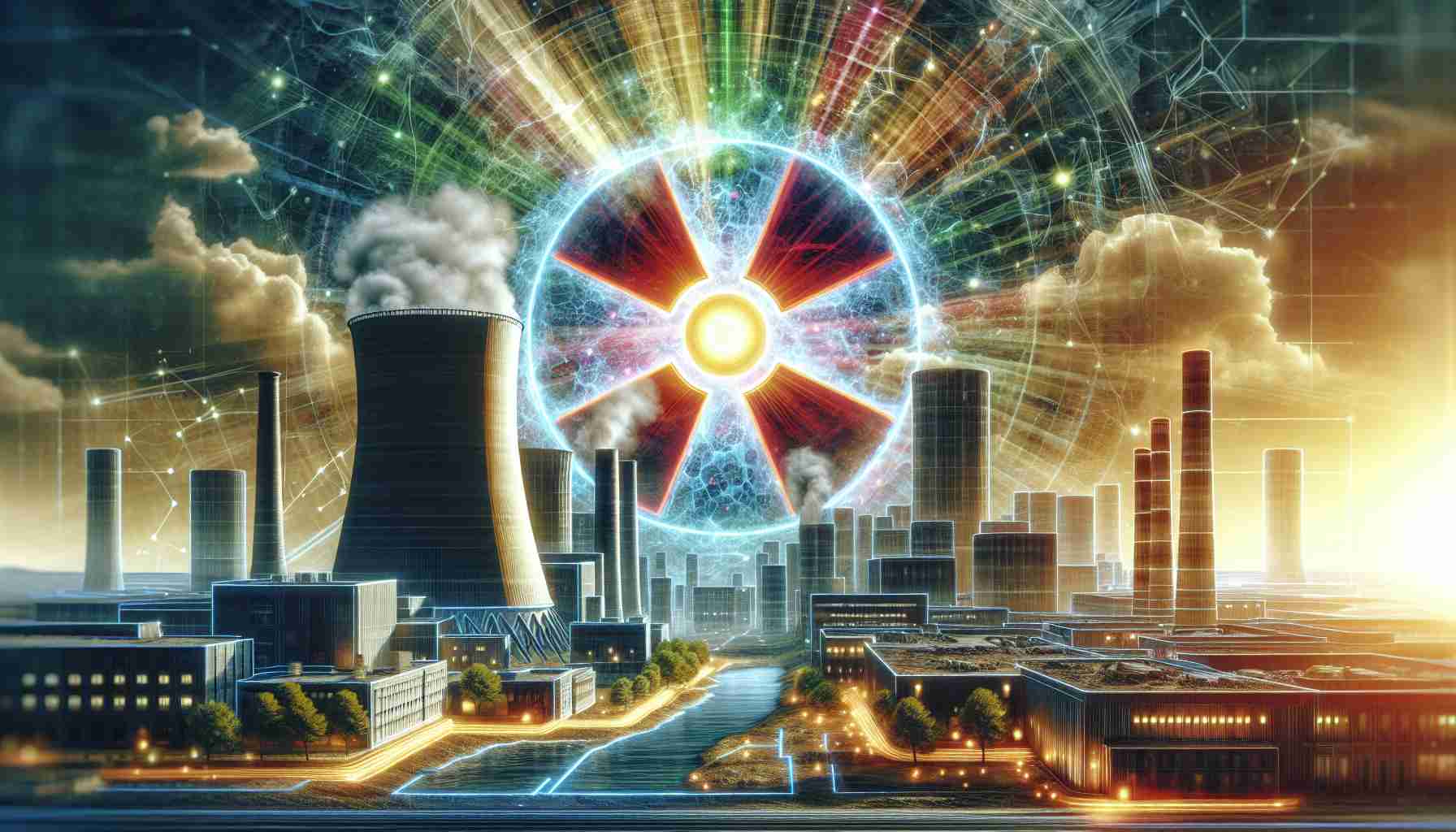Significant Funds Misappropriated at Smolensk Nuclear Power Plant
Alarming reports have emerged from Russia regarding the arrest of the deputy director and a former official from the construction department of the Smolensk Nuclear Power Plant (NPP). The two are accused of fraudulently pocketing approximately 3 million rubles linked to incomplete construction work. These illegal financial activities involved them accepting funds in advance without fulfilling their contractual obligations.
This incident highlights ongoing issues of corruption and financial misconduct within Russian enterprises, a concern that has garnered much attention in recent years, especially in light of anti-corruption campaigns. The situation is exacerbated by the recent sanctions imposed on Russian nuclear energy by the Biden administration, amplifying the potential financial repercussions of this scandal.
The Smolensk NPP is currently working on the Smolensk-II project, which aims to construct a new nuclear facility. The original plant, operational since 1982, is approaching the end of its permitted lifespan, necessitating the establishment of new reactor units expected to be completed by the early 2030s.
Rosatom, the state nuclear corporation, has publicly condemned any misuse of authority and is cooperating with the investigation into these allegations. Strict monitoring procedures are in place to address any financial irregularities. If convicted, the two officials could face significant prison sentences, with penalties reaching up to a decade behind bars.
Implications of Corruption at Smolensk Nuclear Power Plant
The recent scandal at the Smolensk Nuclear Power Plant raises pressing questions about the broader implications of corruption in the energy sector, particularly in a nation heavily reliant on nuclear power. As the world’s fourth-largest producer of nuclear energy, Russia’s reputation could be severely tarnished, impacting its ability to attract foreign investment. Investor confidence is critical for financing future projects, especially complex and costly nuclear facilities like the planned Smolensk-II reactors. If foreign entities feel the legal and ethical landscape is precarious, they may hesitate to engage with Russian ventures.
Additionally, this incident casts a shadow over Russia’s broader energy strategy. With sanctions against the nuclear sector already in place, such scandals can exacerbate existing economic strains. The Russian economy, already grappling with ramifications from geopolitical tensions, risks further isolation if corruption issues persist unchecked.
On the environmental front, progress on the Smolensk-II project is crucial. Delays fueled by financial misconduct could jeopardize the timeline for transitioning to newer, safer reactor technology. A delay might not only affect energy output but also hamper Russia’s potential to meet international safety standards, vital for global cooperation on nuclear energy.
In the long term, the implications extend beyond the plant itself. This scandal could usher in a wave of reforms aimed at improving governance and transparency in a sector often criticized for its opaqueness. Such changes could realign Russia’s nuclear ambitions with a more sustainable and accountable framework.
Corruption Scandal at Smolensk Nuclear Power Plant: What You Need to Know
Overview of the Smolensk Nuclear Power Plant Case
Recent events at the Smolensk Nuclear Power Plant (NPP) have shed light on ongoing issues of corruption within Russian state enterprises. The arrest of two key officials— the deputy director and a former construction department head— has brought to the forefront concerns about misappropriated funds, specifically around 3 million rubles, arising from fraudulent activities linked to incomplete construction projects.
Key Details of the Incident
The core of the allegations revolves around the acceptance of advance payments by these officials before actual construction work was performed. This fraudulent practice not only undermines the integrity of the project but also highlights systemic issues that have long plagued the Russian nuclear sector.
Impact of Recent Sanctions
The situation has been further complicated by sanctions imposed on Russia’s nuclear energy sector by the Biden administration. These sanctions aim to deter financial misconduct and enhance accountability within state-run enterprises, especially in sensitive areas such as nuclear energy. Given the international scrutiny, the implications for the Smolensk NPP and other facilities across Russia are significant.
Smolensk-II: The Future of Nuclear Energy
The Smolensk Nuclear Power Plant is currently focused on the Smolensk-II project, which is critical for replacing the aging infrastructure of the original plant—a facility that began operations in 1982 and is nearing the end of its operational lifespan. The new reactor units are projected to be completed by the early 2030s, marking a substantial investment in Russia’s nuclear capabilities.
Rosatom’s Response
Rosatom, Russia’s state nuclear corporation, has publicly denounced any misuse of authority and pledged full cooperation with ongoing investigations. To combat corruption, Rosatom has implemented stringent monitoring procedures to detect and address any financial discrepancies proactively.
Potential Consequences for the Officials Involved
If found guilty, the arrested officials could face severe penalties, including lengthy prison sentences—potentially reaching up to 10 years. This case serves as a stark reminder of the risks associated with corruption in high-stakes industries such as nuclear energy.
Insights into Corruption in Russian Enterprises
The incident at the Smolensk NPP is indicative of broader trends in Russian state enterprises, where financial misconduct and corruption have become significant issues. Investigations and anti-corruption measures are increasingly relevant in maintaining both public trust and international relations regarding energy security.
Conclusion
The Smolensk Nuclear Power Plant’s ongoing situation reflects not only local management issues but also larger themes of governance, accountability, and the complexities of public trust in the face of corruption. As projects like Smolensk-II advance, the pressure for transparency and adherence to regulations will remain paramount.
For more about Russia’s nuclear energy developments and related topics, visit Rosatom.
The source of the article is from the blog qhubo.com.ni



